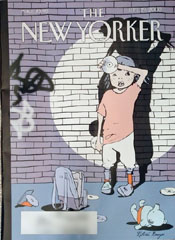There’s a revolution going on guys, and it starts today!
Musicians are going to stand up for their right to use the Internet to promote their music.
Listeners are going to stand up for their right to not be spied on and treated as criminals for sharing that music.
Ready, set….GO!
Here’s an awesome MP3 that will serve nicely as its theme song (courtesy of Zug):
RIAA Phone Call
Here’s more information about it.
(Thanks, Jason.)
Lyrics:
well i recollect the days when music was free
you could tape from the radio, burn a CD
now the RIAA wants to know about me
my address, my number, my ISP
yo, bitches, ain’t we still got privacy?
why the president be lettin’ you spy on me
how many tricks they gonna be lettin you try on me?
trying to be spying on my MP3s
But you protect YOUR corporate privacy
Keep your phone number hidden from the bourgeoisie
Your customers have to play hide and seek
So here’s the number to call if you disagree
775-0101
775-0101
202-775-0101
why’s the RIAA starting litigations
the cops should be looking for the real perpetrations
the killers, the racists, the rapists
‘stead of fucking with us for saving to our hard disk
raise your middle finger if you feel me loc
these fucking subpoenas are a fucking joke
leave us alone, throw us a bone
like i did with your mom that time at your home
There’s NO SUCH THING as bad publicity
Even if you giving it out for free
So join us in the twenty-first century
Where we find our new songs on MP3s
Embrace the new technologies
Grokster, Kazaa, and P2P
So call this number now, and help them see
And if you call from work, your call is free!
775-0101
775-0101
202-775-0101
202 is the area code and we’re dialin’
775 and then we be smilin’
0101-1-cary sherman
well isn’t this fun it’s ZUG.com
you know, they’ve never been fair to the bands.
now the riaa takes a stand?
can’t believe we’re getting preached to by the man
so what’s the plan, stan? I’ve got a short attention span.
they’ve gotta change up the music industry
make it all available on MP3
listen to people like you and me
and make us wanna pay a monthly fee
this song is now my lyrical catastrophe
go ahead and grab it, it’s completely free
aint gotta pay a dime to listen to me
So share this song and fuck the industry



